During a live-streamed National Science, Technology, Engineering and Mathematics (STEM) Awards Ceremony held at Villa Bighi on July 9th, ten winners from nine different categories were announced in the first edition of the awards organised by the Malta Council for Science and Technology. These awards have the aim of promoting STEM subjects and celebrate the people who utilise them to bring changes for the better in education, on the places of work and in the communities.
Equality, Research, and Innovation Minister Owen Bonnici praised the excellent work undertaken by Maltese researchers who dedicate their lives and careers in favour of research and innovation in our country. He said that the national post-pandemic strategy speaks clearly about the need of creating a robust ecosystem of innovation in Malta and he said that this can only happen if the talent of our researchers is valorised.
Executive Chairman of the Malta Council for Science and Technology Jeffrey Pullicino Orlando noted that the ceremony is a celebration of the two years of work of the STEM Engagement Working Group – a group that the Council established jointly with the University of Malta and MCAST. Thanking each member of the working group, which today includes several other entities, he also emphasised that the celebration of the evening is the culmination of much work and effort to recognise the invaluable work of STEM professionals and organisations. He added that this should serve to encourage more children and young people to choose STEM subjects and careers and thus be able to take more advantage of the job opportunities that are being created in our country and contribute to the development of the Maltese economy.
The winner of the STEM Ambassador Award was Prof. Joseph Borg. His work is related mainly to human genetics and molecular biology. One of his ambitious ongoing STEM-based projects is Maleth, which links biomedical science and DNA with space biology. This project will see a Maltese first biomedical laboratory science project taking place onboard the International Space Station while involving Maltese children, groups, and schools to be part of this mission.
The award for Best Secondary School Teacher Award for Contribution to STEM went to Ms Sabrina Camilleri. Ms Camilleri enjoys teaching through simple demonstrations and hands-on activities that aid to visually explain scientific concepts. With a great passion for Physics and Mathematics, she exposes her students to a variety of teaching approaches, namely investigative learning, discussion, hands-on activities, creative work, and digital literacy. Her methods instil a curiosity in her students and make her lessons not only effective but also enjoyable.
Dr Marie Briguglio achieved the Award for Engaged Researcher. Dr Briguglio’s work focuses on scientific models of wellbeing, environmental behaviour, cultural participation, and economics among others. She is also interested in waste management cooperation, uptake of renewable energy and environmental pressures status and responses. She carried out numerous collaborative research projects involving various stakeholders throughout the research process, connecting with all kinds of communities such as children, CEOs, and artists.
The Young Researcher Award went to Prof. Joseph Borg. Commended by his students and work colleagues for having the ability to transmit his passion on various scientific topics especially all things related to DNA genetics and cell biology, Prof Borg is a continuous driving force in multi-disciplinary research. His research concerning Maltese families with very rare genetic mutations in the human KLF 1 gene led to improved work practices at the Molecular Genetics and Thalassaemia Clinic at our National Hospital. Prof Borg is also President of the Malta Association of Biomedical Scientists.
The winner of the Women in STEM Award was Dr Alexandra Bonnici. Dr Bonnici heads the Department of Systems and Control Engineering and is the first female Head of Department in the Faculty’s history. Through her work, she addresses both academic and outreach aspects of STEM. One of her main achievements was hosting the 17th International Symposium on Document Engineering (DocEng) in Malta. She was elected as a steering committee member during the symposium and entrusted again with the role of ‘Program Chair’ in 2021.
The Lifetime Award for Contribution to STEM went to Prof. Irene Sciriha. Prof Sciriha is the first woman full professor appointed in the Faculty of Science at the University of Malta. She is an academic researcher in the Department of Mathematics and was the first Maltese woman to be awarded the degrees of M.Sc. and PhD in Mathematics from the Maltese University and Reading University, UK respectively.
The best STEM Employer Award went to Baxter. For more than 85 years Baxter has been actively seeking to employ engineers, scientists, and technologists to support the multiple functions of the company. STEM occupations are supported with training opportunities, on the job experiences and flexible hours, permitting these STM professionals to expand their professional development.
Wild for Orchids and Akustika won the Award for Best STEM Community Project. Wild for Orchids monitors and maps out the different species of orchids in Malta and Akustika studies bat species in Malta. The team behind these projects implementing the citizen science method is Green House, an interdisciplinary, non-profit research organization that aims to safeguard the Maltese environment.
The award for Best STEAM Project (Panel Award) went to Science in the City. Science in the City is Malta’s National science and arts festival and centres on how important science and research are in everyday life. During the event, researchers take centre stage around our capital city allowing visitors to engage with science practically and enjoyably.
The People’s Choice for Best STEAM Project Award went to Moveo Dance Company’s Diversely Typical, created and devised by Diane Portelli. Diversely is a contemporary dance performance that shines a light on neurodiversity. It is aimed at children between 9 and 15 and aims to encourage the embracement of the natural variations in human genes resulting in conditions such as Autism and ADHD, Oppositional Defiant Disorder, and Sensory Processing Disorder.
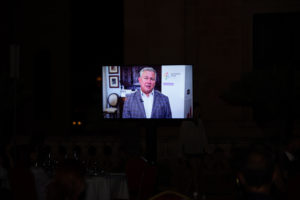
|
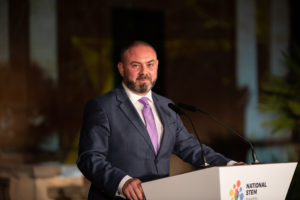
|
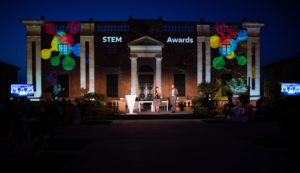
|
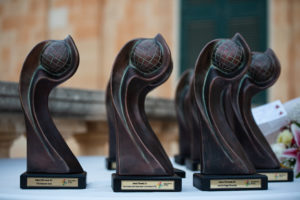
|
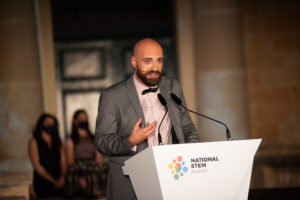
|
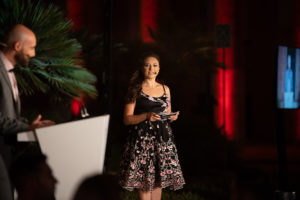
|